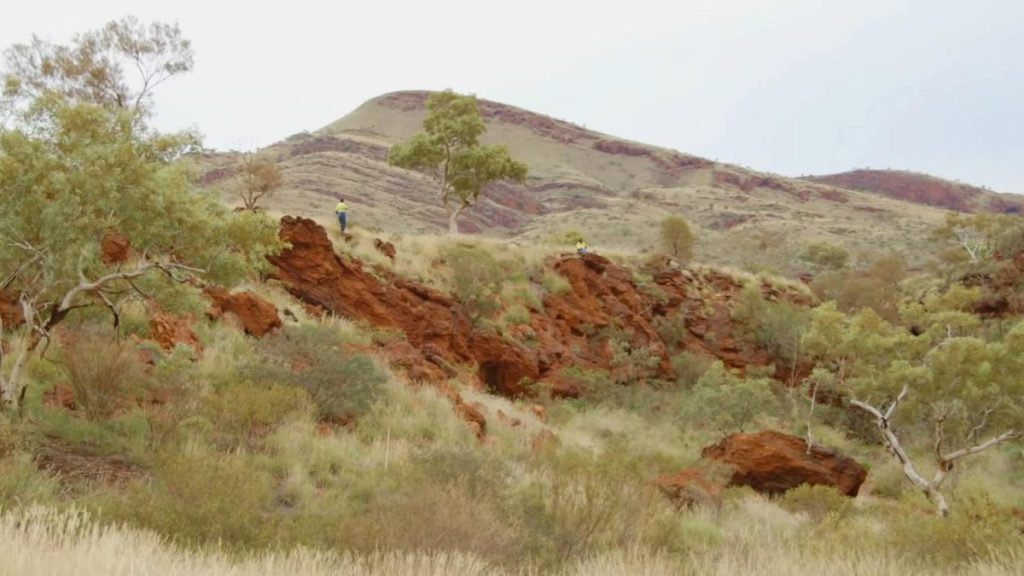PERTH, Australia — Aboriginal groups are not opposed to mining but want a seat at the table, the traditional owners of Juukan Gorge have said ahead of the anniversary of its destruction.
Mining giant Rio Tinto blew up the sacred 46,000-year-old rock shelters in Western Australia’s Pilbara region on May 24 last year to extract AU$ 188 million ($145.6 million) worth of high-grade iron ore.
The incident devastated the traditional owners, the Puutu Kunti Kurrama and Pinikura people, and prompted a global backlash.
In a rare video interview released on May 18, Puutu Kunti Kurrama and Pinikura People Aboriginal Corporation spokesman Burchell Hayes said traditional owners felt robbed of the opportunity to share their heritage with future generations.
“You felt the emptiness that something was taken from you, something that was so significant to you and our community,” he said.

“It’s proof that our ancestors occupied this area for 46,000 years and for that to be taken away, it’s hard to understand why that happened.”
Hayes said the voices of traditional owners had too often been silenced and the Puutu Kunti Kurrama and Pinikura People wanted “co-management” of projects on its country.
“We’re not opposed to mining, however, we want to ensure that we’re around the table when it comes to decisions about making an impact on our country,” he said.
“We’re not going to let this happen again.”
Expert reports commissioned by Rio had outlined the caves’ outstanding archeological and cultural significance long before they were blown up.
A scathing interim report by a parliamentary inquiry by Parliament of Australia last year described Rio’s actions as “inexcusable”.
Rio has repeatedly apologized but said none of its executives were aware the caves would be destroyed until days before the blast when explosives had already been laid.
The company’s Australia chief executive Kellie Parker said it was working with traditional owners to better manage and protect cultural heritage.

“Partnering and developing genuine relationships will guide how we do business in the future, supported by stronger governance to ensure we never repeat what happened at Juukan Gorge,” she said in a statement.
Rio this month told shareholders it was reassessing 1300 heritage sites in the Pilbara in consultation with traditional owners.
About 54 million tonnes of iron ore – less than two percent of its Pilbara iron ore reserves – have been quarantined to protect heritage sites.
Rio this month copped a “first strike” protest vote against its remuneration report, which included a substantial payout to former chief executive Jean-Sebastien Jacques.
A second strike next year would force a possible board spill.
A moratorium on mining has been placed on the Juukan site and the two parties are working to establish what compensation will be provided.
Hayes said “no amount of money” would ever replace the sacred caves.
“I’d rather have the rock shelter back than you write me a cheque. That’s how I feel,” he said.
(Edited by Vaibhav Vishwanath Pawar and Praveen Pramod Tewari)
The post Australia’s Juukan Gorge Owners Want Seat At The Table appeared first on Zenger News.


